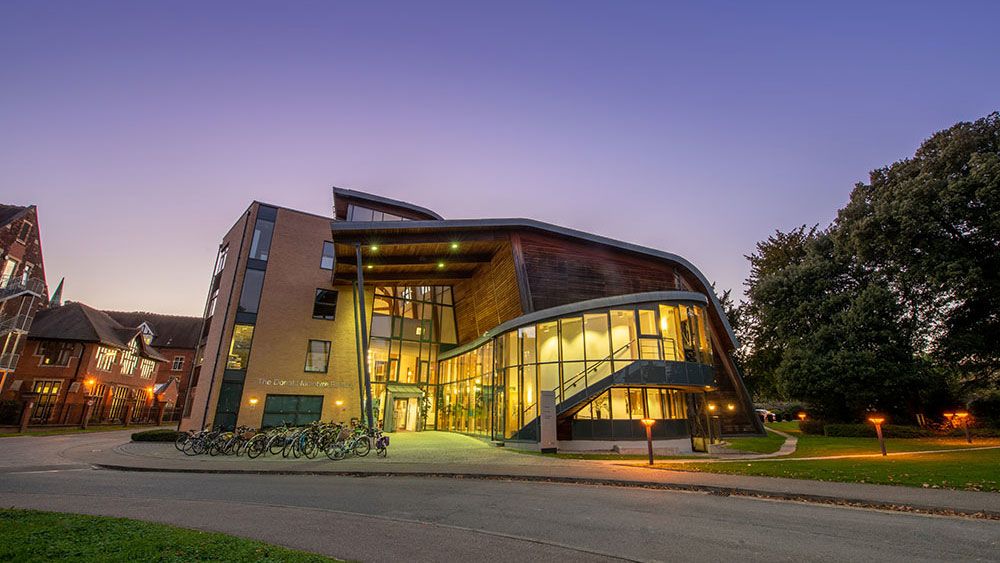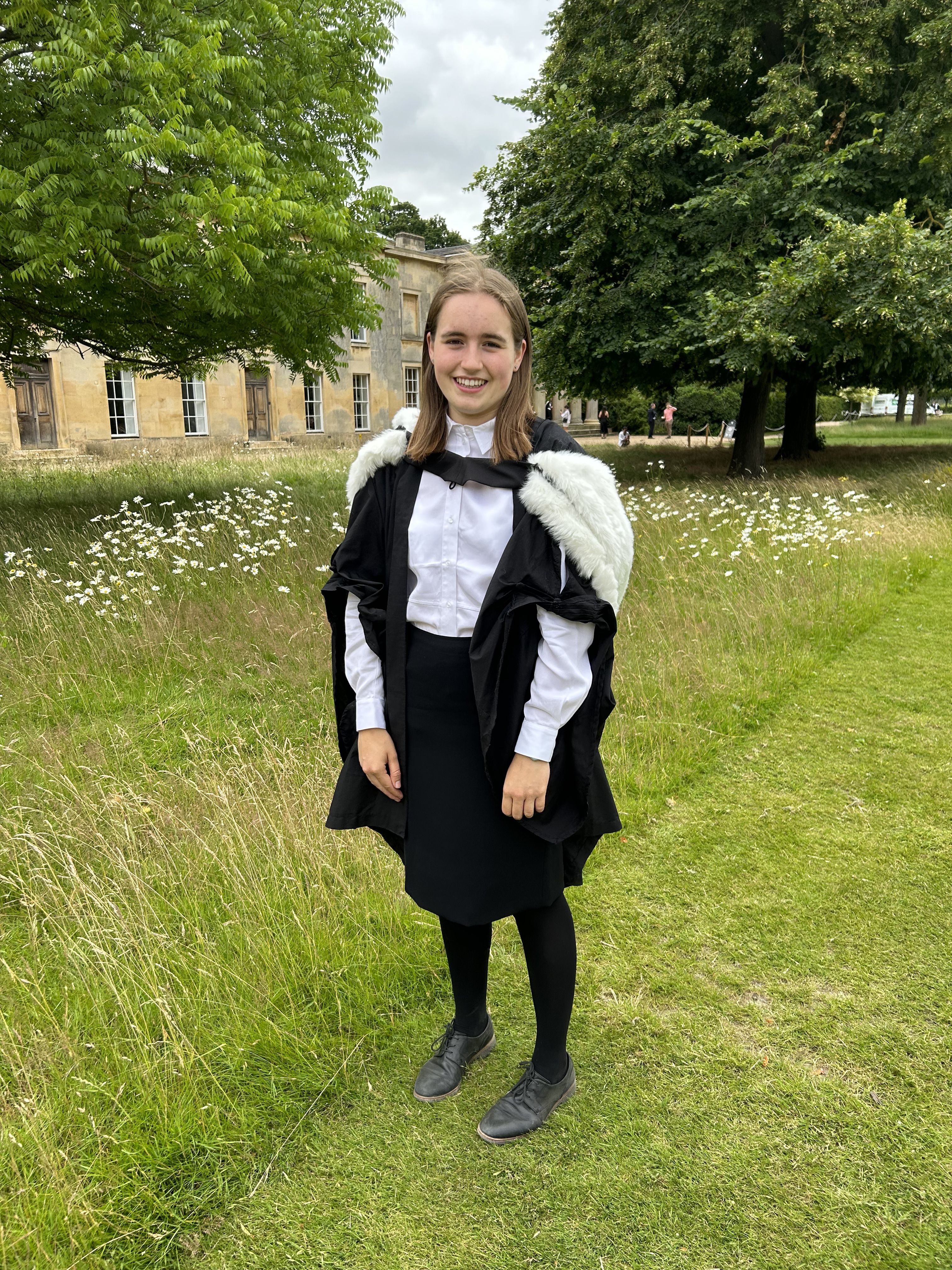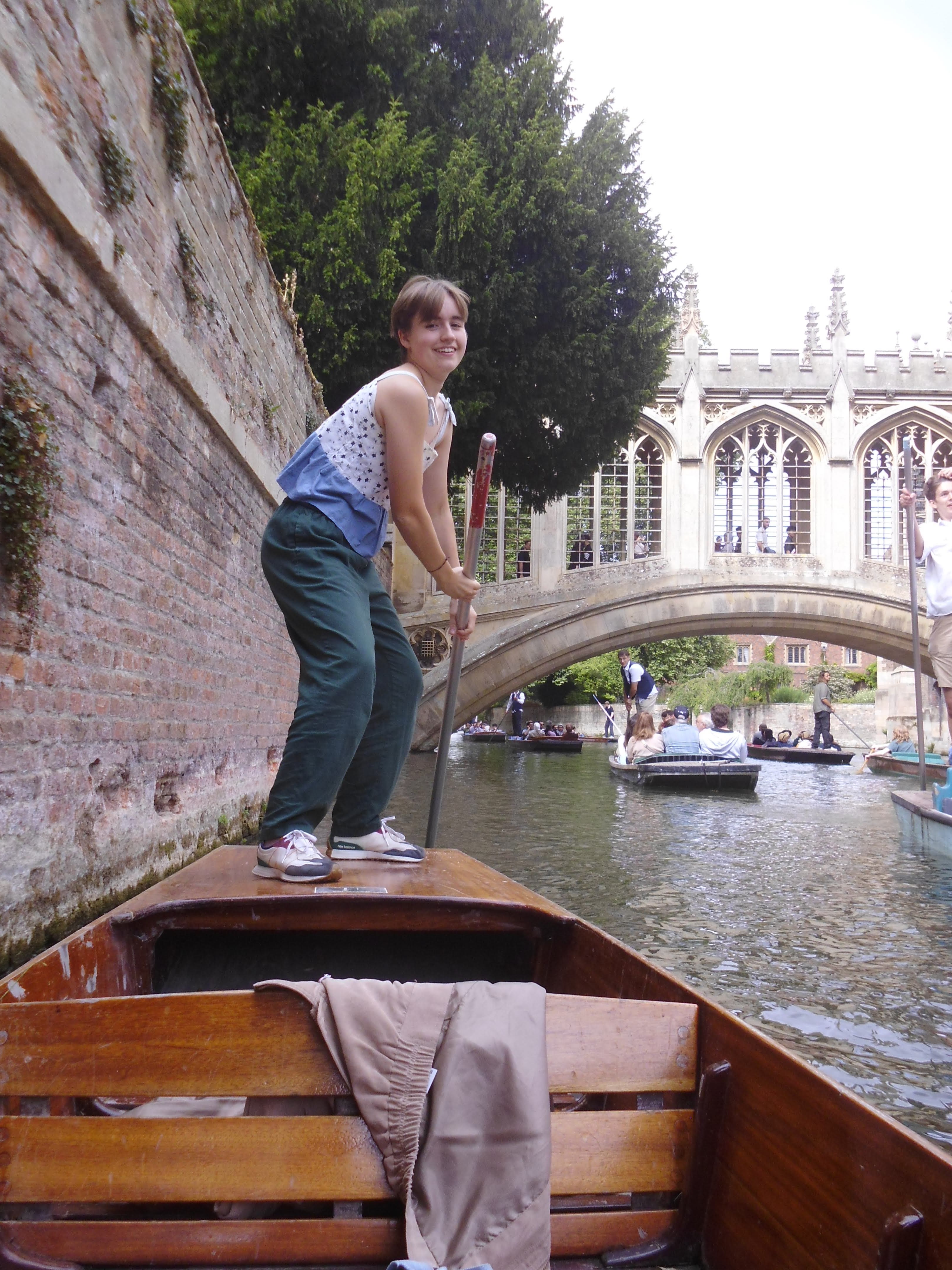What do Education graduates do next?

I was always very indecisive in school, and never really knew what subjects to pick.
At Cambridge I focused on the part of the Education course which looked at literature, drama and the arts, graduating last summer. The fact that this course was so interdisciplinary, and covered so many different subjects, was very appealing. I applied to do English literature at all the other universities I applied for. This was the only one where I wouldn't have to narrow down my options or limit myself to one area. If I decided I liked the sociology side of Education more, I could lean into that, or any other aspect of the course. Then there was also everything else that Cambridge offers, from extracurriculars to the colleges.
I think the main thing that I took away from this degree is the importance of following your own curiosity and interests.
Often, that’s where your best work is created. You need to think about exactly what you're interested in and how they intersect with whatever topic you're doing in your lectures at that point. Rather than writing essays with very broad content, where you're just trying to answer the question in a formulaic way, you need to bring your own personal stance on it. I also learned the importance of having discussions with people around you about what you're studying. That wasn't just with my classmates, but also with the faculty staff and my supervisors. They really treat you as a peer, and someone they can also learn from. The Cambridge system is set up well for that kind of learning.
Since graduating, I've done an MPhil in Children's Literature, also at the Faculty of Education, and I’m now doing a research internship at Jesus College.
It was hard to narrow it down. I did a paper on children’s literature in my final year, and my dissertation was also in that field. But I also loved the sociology aspect of the course, and I did papers on Shakespeare and post-colonial literature. The literature papers were very non-traditional, in the sense that it you studied a huge range of time periods.
Sometimes we would study Ancient Greek literature. Other times we would focus on contemporary literature, which I didn't really have the chance to study much at school. So coming into university, it was such a cool experience to study the things that I would read in my spare time. The Shakespeare paper was also great in how it intersected with the Drama element of the course. There was a big focus on how Shakespeare is actually performed. Every week, instead of just reading the plays that we were studying, we watched online productions and were encouraged to talk about that in our classes and essays.
"There were all sorts of ways in which I could focus my degree on subjects that were interesting to me."
On this course, I got to apply my research to parts of education that were important to me.
I’ve always loved children’s books, as one example. I also wrote a lot about grammar school system, which I grew up in, and about queer young people’s experiences of formal education.
There were all sorts of ways in which I could focus my degree on subjects that were interesting to me.
It's a very non-elitist field. There's an openness to you bringing whatever you want to study into it. Obviously, they'll give you reading suggestions, which can open you up to new literature that you didn’t know before, but there’s not a strict set what you have to learn.
Doing the MPhil was very much a continuation of what I was doing as an undergraduate.
It really prepared me to do the bigger research projects that a Masters entails. I was also lucky enough to have studied children's literature, whereas a lot of people going to the Masters hadn't studied it before. Having that foundation was really helpful.
And of course there were research skills, essay writing skills, and the ability to know my own voice. That last one has really helped define what I wanted to focus on in my Masters. Writing essays frequently and learning how I write in my undergraduate degree has helped me understand what I’m interested in, and what I can bring to children’s literature research.


